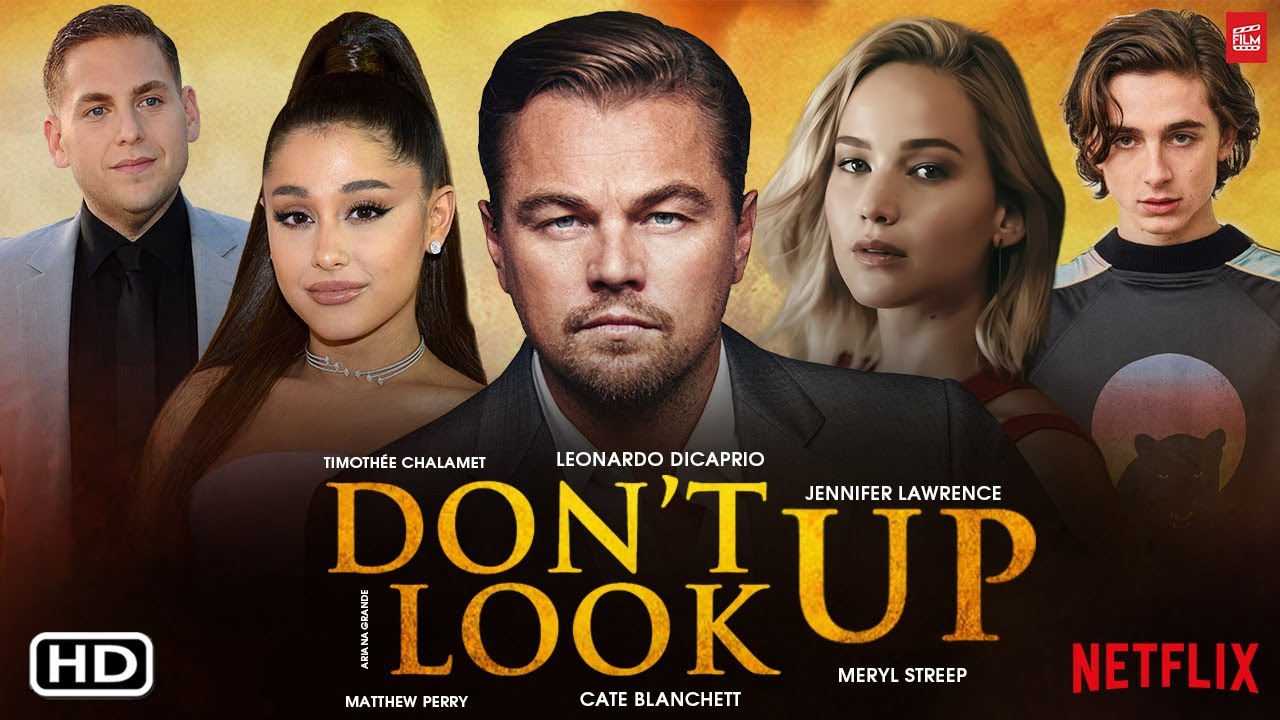Introduction
In the realm of modern satire and disaster films, "Don’t Look Up" has emerged as a standout entry that combines sharp wit with a pressing message. Directed by Adam McKay, known for his work on films like "The Big Short" and "Vice," this 2021 film has garnered significant attention for its incisive commentary on contemporary issues. Targeted specifically at U.S. audiences, "Don’t Look Up" offers a compelling blend of humor, drama, and star power. This article provides a comprehensive guide to understanding the full movie experience and why it’s a must-watch.
Plot Summary and Themes
"Don’t Look Up" follows the story of two astronomers, Dr. Randall Mindy (Leonardo DiCaprio) and Kate Dibiasky (Jennifer Lawrence), who discover a comet on a collision course with Earth. As they attempt to warn humanity about the impending disaster, they encounter widespread apathy and misinformation. The film satirizes the public and political response to crises, drawing a parallel to real-world issues such as climate change and media sensationalism.
The central theme of "Don’t Look Up" revolves around the consequences of ignoring scientific evidence and the failure to act in the face of imminent danger. The film uses dark humor and sharp satire to critique how societal and political institutions handle critical issues, making it both entertaining and thought-provoking.
Star-Studded Cast
One of the most compelling aspects of "Don’t Look Up" is its impressive ensemble cast. Leonardo DiCaprio and Jennifer Lawrence deliver standout performances as the beleaguered scientists trying to sound the alarm. Their chemistry and dedication to their roles add depth to the film’s narrative.
The supporting cast includes a roster of top-tier talent such as Meryl Streep, who plays the President of the United States, and Jonah Hill, who portrays her chief of staff. Additionally, Cate Blanchett and Tyler Perry provide memorable performances as television news personalities, contributing to the film’s critique of media and politics.
Visual and Technical Aspects
Adam McKay’s direction in "Don’t Look Up" is characterized by its energetic pacing and dynamic visual style. The film’s use of CGI to depict the comet and its impact is both realistic and visually striking, enhancing the film’s dramatic effect. The technical aspects of the film, including its special effects and set design, are meticulously crafted to support the narrative and create a believable, if exaggerated, portrayal of the impending disaster.
Musical Score and Soundtrack
The soundtrack of "Don’t Look Up" features a mix of contemporary tracks and original compositions that complement the film’s tone. The music, curated by [Composer's Name] and [Music Supervisor's Name], plays a crucial role in setting the film’s satirical and urgent mood. The soundtrack’s blend of genres and styles adds to the film’s unique atmosphere, enhancing the viewing experience
.
Critical Reception and Audience Response
Since its release, "Don’t Look Up" has sparked considerable discussion and debate. Critics have praised the film for its clever satire and bold approach to addressing pressing global issues. The film’s ability to blend humor with serious commentary has resonated with audiences, particularly in the U.S., where its themes are especially relevant.
Audience response has been largely positive, with many viewers appreciating the film’s sharp social critique and the strong performances from its star-studded cast. The film’s success on streaming platforms and its relevance to current events have solidified its position as a significant cinematic release.
Where to Watch "Don’t Look Up"
For U.S. audiences eager to experience "Don’t Look Up," the film is available for streaming on Netflix. The platform’s accessibility makes it easy for viewers to watch the film from the comfort of their homes, providing an opportunity to engage with its timely and provocative content.
Impact on Contemporary Cinema
"Don’t Look Up" represents a notable entry in the genre of satirical disaster films. Its approach to blending humor with urgent social commentary has set a new standard for how filmmakers address complex issues through cinema. The film’s success highlights the growing trend of using satire to engage with serious topics, encouraging other filmmakers to explore similar approaches in their work.
The film’s influence extends beyond entertainment, prompting discussions about media responsibility, political leadership, and the role of science in shaping public policy. Its impact on contemporary cinema underscores the power of film to provoke thought and inspire change.
Conclusion
"Don’t Look Up" is a must-watch for U.S. audiences seeking a film that combines sharp satire with a critical examination of contemporary issues. With its stellar cast, dynamic visuals, and thought-provoking narrative, the film offers both entertainment and insight. As a standout entry in the genre of satirical disaster films, "Don’t Look Up" not only captivates viewers but also encourages meaningful reflection on the challenges facing society today. Whether you’re a fan of dark comedy or interested in films that tackle urgent issues, "Don’t Look Up" is a cinematic experience that should not be missed.


0 Comments